- Home
- Heather Graham
Echoes of Evil Page 23
Echoes of Evil Read online
Page 23
“Figured something like that,” Liam said. “And now?”
“I just don’t get the sense that she’s completely gone.”
“I felt that, too,” Liam said. “Damn, I wish to hell someone in this group would walk around like Cliff and know exactly what the hell happened to them.”
Yep, would be nice. But it seldom happened.
Actually, in Brodie’s experience, it never happened. Often, but not always, the dead remained because they needed help for closure. They didn’t know what had happened to them—why they had so suddenly been jerked from life.
And sometimes they stayed because their love for family or friends was so strong, they had to make sure that they were all right, that they were there to help others through trials or troubled times.
“Both she and Arnold Ferrer are...still with us, somehow, in a sense,” Brodie said.
Liam nodded.
“Let’s see this Detective Lacy. Someone, somewhere, knows just where and how Mathilda Sumner wound up washing up in Key West.”
15
Kody’s museum had been a labor of love for a long time.
She’d left the islands long enough to attend college up in Orlando, but she’d always known that she’d live back in Key West. She had received her degree in fine arts, with dual majors in history and hospitality.
That was what one needed in the Keys.
She spent several years working for various different tour groups and with local inns and bed-and-breakfast establishments; she’d helped Bev and Dan out at the Sea Horse at one time. All of it had been leading to her museum. She’d been lucky, gaining so much community support. With Colleen going through the other rooms, Kody concentrated on the Artist’s Corner, a room of the museum dedicated to those who were performers or creators in the many different arts that were, in Kody’s mind, the finest part of humanity. She had always particularly loved music. It would have been impossible to be her father’s daughter otherwise.
There was one wall and a display case dedicated just to her father.
The wall was adorned with his album covers, concert posters and pictures of Michael McCoy with the Bone Island Boys—his two fellow bandmates in the ’80s. Ben Woodrow, drummer, had died of a sudden heart attack when he’d been very young for such a death, just forty. George Fallow, bassist, had passed away soon after, complications from AIDS.
She knew far too much about her father’s life. Being as successful as he’d been had become a challenge for him. There were people with the strength and will to survive the lifestyle that often came with fame and fortune, those who learned and came out of it okay. If it hadn’t been for her mom, she didn’t think that her father would have been one of them.
He had told her as much.
Her father had been, though, a savvy businessman. He had kept control and owned all of his music—he had created the tunes and written the lyrics himself on the numbers that had been done with the band. Kody was incredibly proud that he had been, no matter what, a humanitarian. His music often called on people to fight for justice, and, always, to be kind to one another.
He’d written more than a few love ballads, too.
She stopped in front of a large poster that featured her father’s face. She’d gotten her eyes from him—a strange yellow-brown-green color that was hazel but also amber. She had his light brown hair. In this particular poster, he’d been a very handsome man.
A total heartthrob in his day, which had, of course, gotten him into a bit of trouble at times.
He stared down at her from the poster, a serious expression on his face, his beloved guitar held in his hands.
“Why?” she whispered softly. “Why? I often feel like I’m walking in Grand Central for the dead, but I don’t get to see you!”
She hoped desperately that there was a heaven.
That he was there, playing away. He had, oddly enough, been a very spiritual guy, though he hadn’t adhered to a particular church.
He’d gone often enough to services with Cliff—and had brought her with him. While Cliff had gone to the Catholic Church and her mother had gone to the Episcopalian, neither of them cared which she went to—or if she attended Temple with Jewish friends or any other house of worship. They believed in the basic tenets of goodness, and her father once told her, “Most religions teach us to be good people. It’s only what men can do with religions that make them bad.”
“Love you so much,” she whispered. “Wish you were here... I think you’d love Brodie. Of course, I don’t know what the future will bring.”
She was still staring at the poster when Colleen found her.
“All is well. Hey, when we close, can I give you a few ideas?”
“You know I always value your opinion,” Kody assured her.
She pointed to one of the display cases. “I like the way you have your dad’s notes displayed. I think it’s really cool to see how a major talent like your dad went about his creations. You know, we still have that box in back that you haven’t gone through yet.”
“I’ll get to that—very soon. I think I’m going to move some of these posters...get them closer together. And then gather the pictures of my father and Cliff and let those segue into a section on Cliff. What do you think?”
“I think it’s great. And we can get another of those cases you have for your dad’s guitar—and put Cliff’s guitar next to it.”
“Well, we’ll have to see. Rosy may want to keep Cliff’s guitar.”
“Oh, well, you’re right...we’ll see. I kind of ran back here—I’m going to run back to the front.”
“I’ll spell you in just a minute. I’m going to go through the Civil War Era room and figure out more on the artifacts and documents from the Victoria Elizabeth,” Kody told her.
Colleen left the room. Kody stared at the picture of her father a moment longer, and then started to turn away when another picture caught her eye.
It was one of more than a dozen that had been set in handsome five-by-seven frames and arranged in what Kody hoped were artistic rows that created the shape of a guitar on the wall.
He was with the Bone Island Boys in several; others featured various top ’80s and ’90s bands he’d sat in with.
Still others featured her father playing with friends, lesser known musicians, those he was trying to help along.
She peered closely at one picture.
There was her father—with a very young Arnold Ferrer.
* * *
Detective Lacy was an older man—one with twenty-seven years of experience with the Monroe County sheriff’s office. He was both laid back and thorough, a man who was more interested in facts than in speculation. He’d brought them to the store where Mathilda Sumner worked.
“Mathilda’s car was parked right in front of her house. She owns a little ranch place off of Mile Marker 54,” he told them. “I’ve been in the house, but as far as I can see, nothing went on there—nothing is in disarray. There are no notes on the kitchen counter, nothing to indicate that she was going out. I’ve talked to her manager already, but he’s promised to gather those who are closest to her so that they can speak with us now.”
Liam thanked him.
“We’ve got to keep it together here, right?” Lacy asked. He eyed Brodie suspiciously.
“Mr. McFadden is a private investigator working with local concerns,” Liam explained.
Brodie was pretty sure Lacy wasn’t about to embrace him fully, but at least Lacy made no protest about his being there.
They went into the grocery store.
It was a local shop, not a big chain. There were two checkout counters. There were signs above some of the refrigerator containers. One read “Fresh dolphin—the fish, not the mammal, for all our northern guests! Caught by Jim Beacon last night!” Another advised, “Yellowtail! Off the boat of Big Pat
O’Malley!”
A man approached them. He was of medium height, a bit stout, and in his mid-fifties or so.
He wore an anxious look on his bulldog face.
“Hello, I’m Syd Avila. This is my place. I’m closing the door while you’re here and calling out the staff. Mathilda was one of ours,” he added in a whisper.
Brodie liked the man right away; he obviously really cared. He was willing to shut down his business to help.
“Thank you,” Brodie said.
“Hey, I’m going to do my grocery shopping up here from now on, even if I live in Key West,” Liam told him.
Detective Lacy grunted.
A minute later, the door was locked and they were gathered in the back office and storeroom. Avila’s staff consisted of two stock boys, plus Mrs. Avila, his wife, and another Mrs. Avila, his daughter-in-law.
“Thank you all,” Liam said. “What I need to know is who saw Miss Sumner last. Did any of you have any idea of what she might have been doing?”
“She told me she was going to be fixing up the house,” Mrs. Avila, the owner’s wife, said.
“She left here right about six—we don’t close until eight,” Syd Avila said, “but Mathilda was here until six—she played at night sometimes, so...she’d need to be at the bar for their entertainment hours. But she wasn’t due to work last night—there was a band down from Miami—probably not nearly as good as Mathilda—but the owner’s son wanted to shake everything up a bit.” He made a face. “We don’t need that new hopped-up stuff at our tiki bars. But...Mathilda was glad of a night off. Said her place needed some freshening up.”
“Mathilda was awesome,” one of the stock boys offered.
“She was the best,” the other agreed.
“But did anyone see or hear from her after she left the store?” Brodie asked.
The younger Mrs. Avila spoke up softly. “She drowned, right? She must have gone down to the beach and...”
“Was that her custom—to come down to Key West at night and go to the beach?” Brodie asked.
“No...no one goes to the beach at night,” Syd said.
“She could swim,” younger Mrs. Avila offered. She looked from Detective Lacy to Liam to Brodie. “She was a good swimmer, and a diver, but not by night. She loved the sun. She was so happy to live here, in Marathon. But she said she never wanted to dive at night—or to swim at night. You couldn’t see at night.”
“Was she meeting with any kind of a friend, maybe?” Liam asked hopefully.
They all stared at him blankly.
“She was going home. She was going to clean,” Mrs. Avila—Syd’s wife—said, shaking her head at a total loss. Tears popped into her eyes. “We will miss her so much.”
“None of you knows anything else?” Liam asked. “She just left here—and told you she was heading home to clean.”
They all stared at Liam. Their eyes were big and moist.
Liam thanked them all; Brodie echoed his words. Detective Lacy led the way out, saying, “Syd, you’re the best. You can open back up now.”
Brodie trailed on the way out. He was startled to feel a hand on his upper arm; he turned back.
The younger Mrs. Avila had followed him.
She glanced past him to make sure that Detective Lacy had gone on ahead.
“He thinks it’s a simple drowning—I don’t. Mathilda was such a good friend, we did nails together, movies...times out. And, like my mother-in-law said, it’s true. When she left here, she said she was going home to clean.”
“But?” Brodie asked softly.
“She was excited about something. She told me a great opportunity was coming up, that a friend had called her about putting together a special gig. That was a few days ago. I bugged her, but she wouldn’t say more. She promised I’d be the first to know. I don’t know if that means anything or not, but I wanted to tell you. Without our fine Detective Lacy thinking I’m just a hysterical woman.”
“Thank you,” Brodie told her. “That could mean nothing, or everything.”
Detective Lacy and Liam were staring at him. He smiled and hurried on out—after discreetly handing Mrs. Avila his card.
“On to the bar?” he asked.
Lacy shrugged. “We can, but as they told you, Mathilda was off that night.”
“She still might have talked to a friend there,” Liam pointed out.
Lacy shrugged. “I’ve talked to them. The manager, the bartender, the waiters and waitresses...they all acted as if I was crazy. Said they were far too busy for chitchat or phone calls. But then again, we don’t have anything at all. You are welcome to give it a go.”
Tortoise Cove was just a few miles south, near the Seven Mile Bridge.
It was a small place with a large overhang, a very tiny bandstand, and, as with many such places, a bar in the middle.
An early lunch crowd was seated around the bar; two bartenders were working, and it seemed that there were three girls on the floor. A man sitting at the bar rose when the young bartender pointed out the three men coming toward the bar.
He strode over to meet them. “Detective Lacy,” he said, shaking his hand, and then looking at Liam and Brodie. “I’m Harry Wallace, manager here. Mathilda worked for us here two to three nights a week, depending on what was going on. Great woman. Our locals loved her. Goes to prove, huh, no matter how good a swimmer you think you are, you can always get caught in a current.”
“We’re just trying to figure out who she was with—and how she wound up in Key West,” Liam said. “She didn’t drive down by herself. Her car was parked in front of her house.”
“I talked to the detective already,” Wallace said, indicating Lacy.
“We know. We’d just like to find out if she said anything to anyone else. If she mentioned going out, anyone she intended to meet.”
“My staff are busy,” Wallace said.
“We’ll be discreet, and we’ll split up,” Liam said.
Brodie drew the bartender and two of the girls working the floor. The bartender stopped what he was doing when Brodie approached him; he must have known that he was coming to talk about Mathilda.
“Ah, man. It’s such a bummer. She was the sweetest,” he said.
“Yeah, I know—bummer,” Brodie agreed. “Thing is, we’re trying to find out what happened. We’re hoping she said something to one of you.”
“No, I didn’t see her night before last. She wasn’t working. We had a band in from Miami.”
“I know. But I mean, at any time, in the days before, did she say anything about meeting a friend, going to the beach?”
He started to shake his head. “Oh, well, I don’t know if this means anything, but...a couple of days before she...drowned, she gave me a wink when we were talking and said that she might be involved in something very special.”
“And she didn’t say what?”
“Something special...to Mathilda, that meant music. It might have meant that she was trying to score some great concert tickets—she loved to play, but man, she loved to watch other musicians, too. I...wish I knew more. I’d give a lot to help you.”
Brodie quietly handed him a card. “If by any chance...”
“You bet, man. I’ll call you right way.”
His one waitress was older; she was nice, but harried, and just told him that she never really got to spend much time with Mathilda and didn’t know her very well.
The second waitress, a bone-thin younger girl, was more interested in speaking with him. “Mathilda was a doll. We’d have coffee now and then. I thought she might drive up to Miami with a night off, or, come to think of it—down to Key West. But she was sad, I think—a friend of hers who played down there died. I don’t think she’d still be going...but...maybe in honor.”
“Cliff Bullard. Does that name mean anything to you?”
<
br /> Balancing plates in her hand, she cocked her head to the side. “Cliff...yes, that might have been it. Clive or Cliff...yes, a C name, I’m certain.”
“Did she tell you about doing something special?”
“Oh, yes, but that was several days ago. She told me to cross my fingers for her. But what it was, I’m so sorry... I don’t know.”
Brodie met up with Liam and Detective Lacy back at the front. They thanked the manager and left.
“How about the neighbors? Were they able to tell you anything?” Brodie asked Lacy.
Lacy shook his head. “Only found one of them. An old, old man living next to her. He had no idea, but told me that a bomb could go off and he wouldn’t know—he’s almost deaf and on medication.”
“Care if we go door to door?” Liam asked him.
“Be my guest,” Lacy told him. He hesitated—as if he really didn’t want to say what he was about to, or maybe that he knew he was about to sound like a completely heartless dick. “Look, she drowned. No defensive wounds or marks. Maybe someone we can’t even think of dropped her at the beach. But probably she just drowned.”
“Were any of her belongings found on any beach here?” Brodie asked.
Lacy shrugged. “Look, we’re not without our problems—and not without our homeless. She might have brought nothing but a few bucks with her and a towel. And if that was the case... Look, I’m sorry. Really sorry. She was probably a good person. But the best I can see, it was an accidental drowning and her body got caught in the currents. God knows, water does strange things. But please feel free to investigate. Even if this is Marathon, Detective Beckett, and you work down in Key West.”
Brodie smiled at him. “I’m a private investigator. Reciprocal privileges,” he said. “I’ll be working this until we discover just what did happen.”

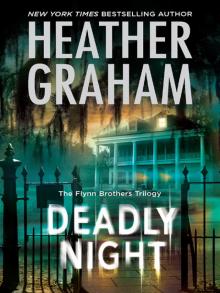 Deadly Night
Deadly Night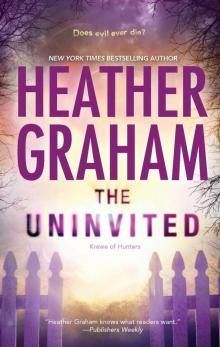 The Uninvited
The Uninvited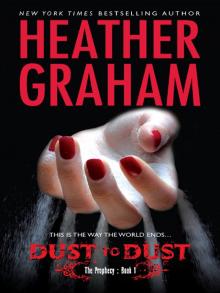 Dust to Dust
Dust to Dust Heart of Evil
Heart of Evil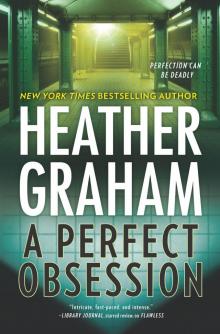 A Perfect Obsession
A Perfect Obsession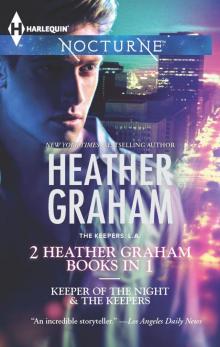 The Keepers
The Keepers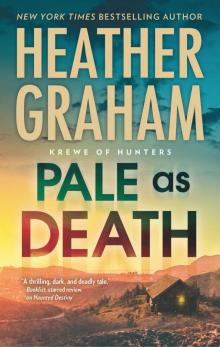 Pale as Death
Pale as Death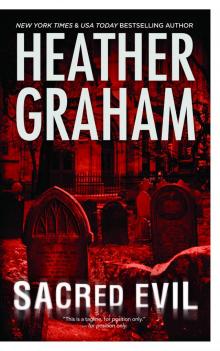 Phantom Evil
Phantom Evil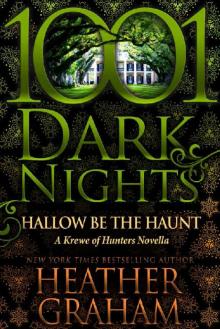 Hallow Be the Haunt
Hallow Be the Haunt Night of the Wolves
Night of the Wolves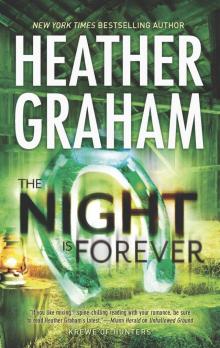 The Night Is Forever
The Night Is Forever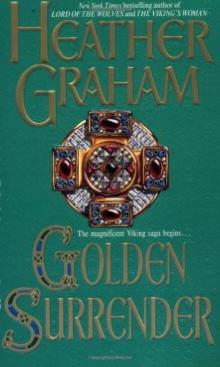 Golden Surrender
Golden Surrender Kiss of Darkness
Kiss of Darkness Beneath a Blood Red Moon
Beneath a Blood Red Moon A Dangerous Game
A Dangerous Game Ghost Shadow
Ghost Shadow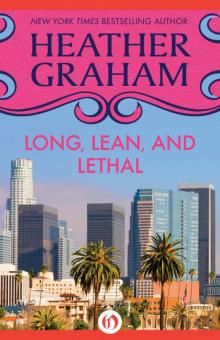 Long, Lean, and Lethal
Long, Lean, and Lethal Fade to Black
Fade to Black The Rising
The Rising And One Wore Gray
And One Wore Gray Rebel
Rebel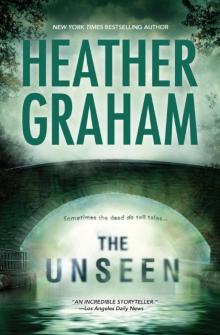 The Unseen
The Unseen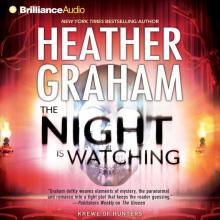 The Night Is Watching
The Night Is Watching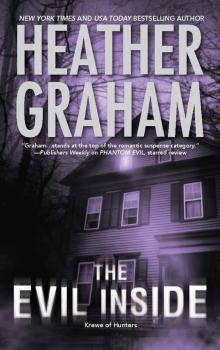 The Evil Inside
The Evil Inside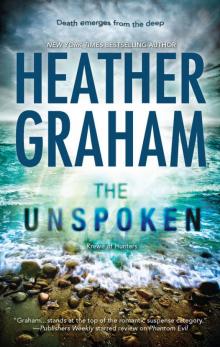 The Unspoken
The Unspoken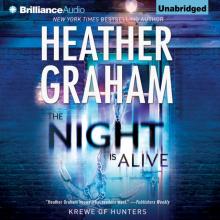 The Night Is Alive
The Night Is Alive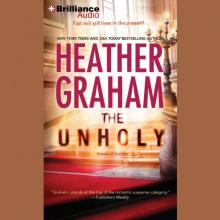 The Unholy
The Unholy Nightwalker
Nightwalker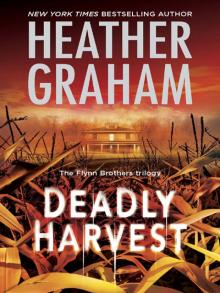 Deadly Harvest
Deadly Harvest An Angel for Christmas
An Angel for Christmas A Pirate's Pleasure
A Pirate's Pleasure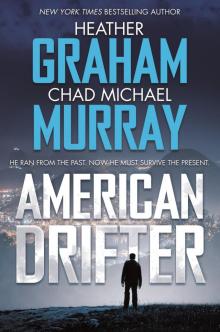 American Drifter
American Drifter Realm of Shadows
Realm of Shadows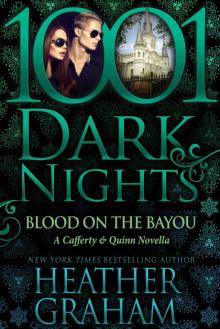 Blood on the Bayou
Blood on the Bayou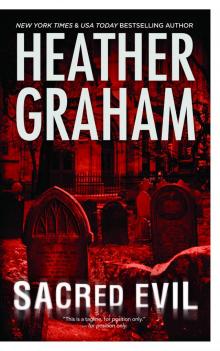 Sacred Evil
Sacred Evil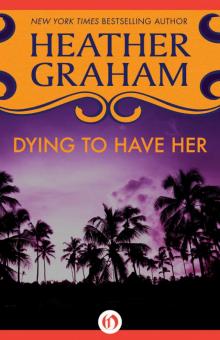 Dying to Have Her
Dying to Have Her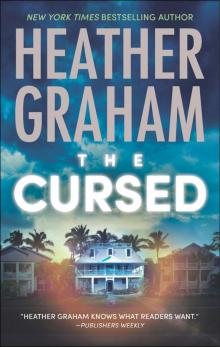 The Cursed
The Cursed Captive
Captive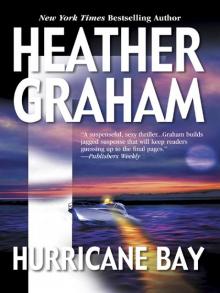 Hurricane Bay
Hurricane Bay Drop Dead Gorgeous
Drop Dead Gorgeous Ghost Memories
Ghost Memories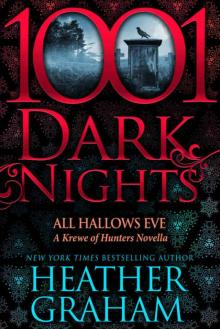 All Hallows Eve
All Hallows Eve Dying Breath
Dying Breath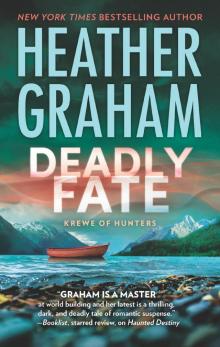 Deadly Fate
Deadly Fate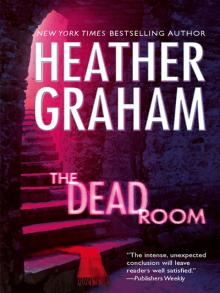 The Dead Room
The Dead Room Lord of the Wolves
Lord of the Wolves Ghost Night
Ghost Night Ghost Walk
Ghost Walk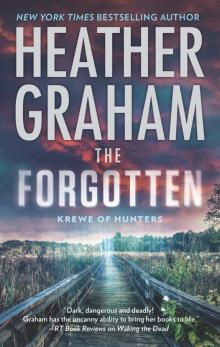 The Forgotten
The Forgotten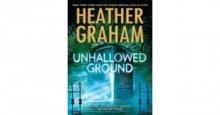 Unhallowed Ground
Unhallowed Ground One Wore Blue
One Wore Blue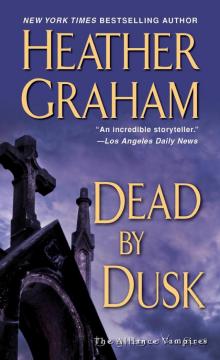 Dead By Dusk
Dead By Dusk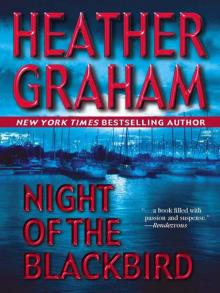 Night of the Blackbird
Night of the Blackbird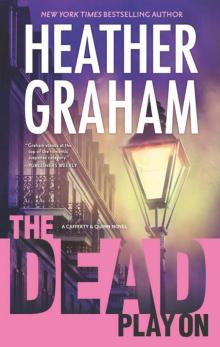 The Dead Play On
The Dead Play On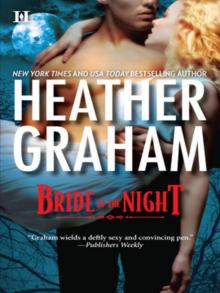 Bride of the Night
Bride of the Night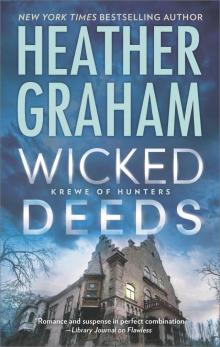 Wicked Deeds
Wicked Deeds The Forbidden
The Forbidden Triumph
Triumph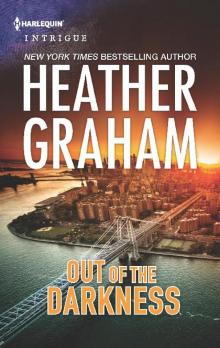 Out of the Darkness
Out of the Darkness Love Not a Rebel
Love Not a Rebel The Last Noel
The Last Noel Tall, Dark, and Deadly
Tall, Dark, and Deadly The Death Dealer
The Death Dealer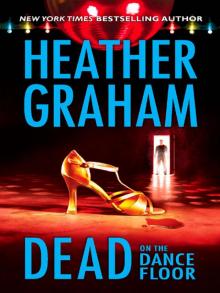 Dead on the Dance Floor
Dead on the Dance Floor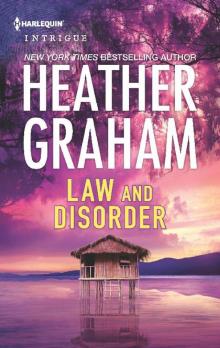 Law and Disorder
Law and Disorder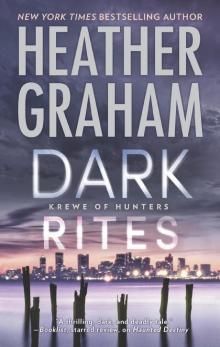 Dark Rites
Dark Rites New Year's Eve
New Year's Eve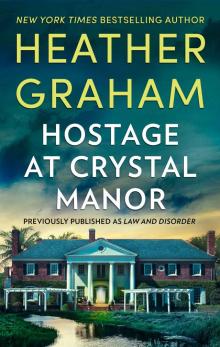 Hostage At Crystal Manor
Hostage At Crystal Manor And One Rode West
And One Rode West Home in Time for Christmas
Home in Time for Christmas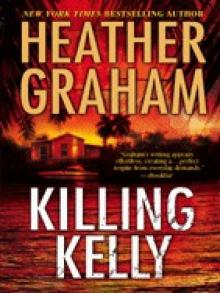 Killing Kelly
Killing Kelly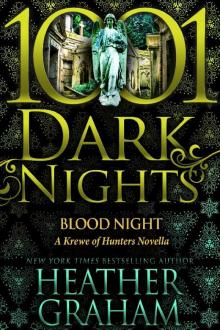 Blood Night
Blood Night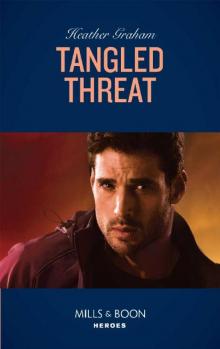 Tangled Threat (Mills & Boon Heroes)
Tangled Threat (Mills & Boon Heroes)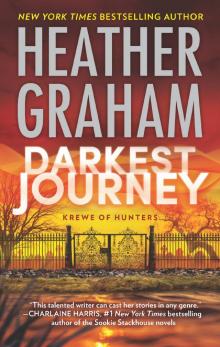 Darkest Journey
Darkest Journey Glory
Glory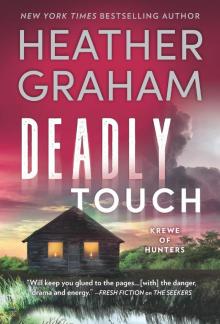 Deadly Touch
Deadly Touch An Unexpected Guest
An Unexpected Guest Night of the Vampires
Night of the Vampires Seize the Wind
Seize the Wind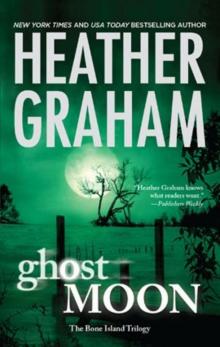 Ghost Moon
Ghost Moon The Vision
The Vision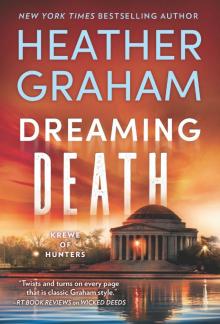 Dreaming Death
Dreaming Death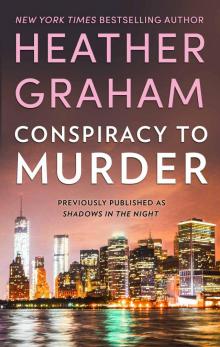 Conspiracy to Murder
Conspiracy to Murder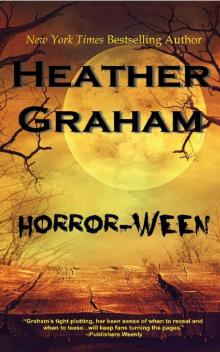 Horror-Ween (Krewe of Hunters)
Horror-Ween (Krewe of Hunters)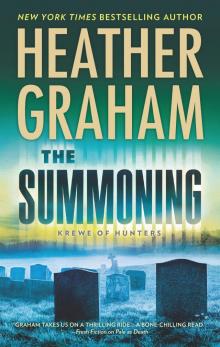 The Summoning
The Summoning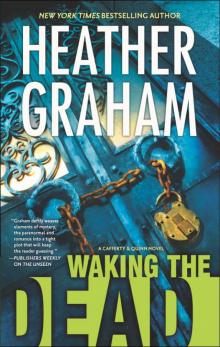 Waking the Dead
Waking the Dead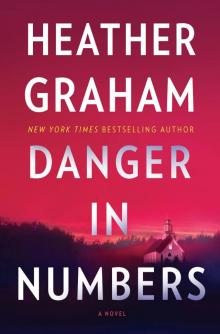 Danger in Numbers
Danger in Numbers The Hidden
The Hidden Sweet Savage Eden
Sweet Savage Eden Tangled Threat ; Suspicious
Tangled Threat ; Suspicious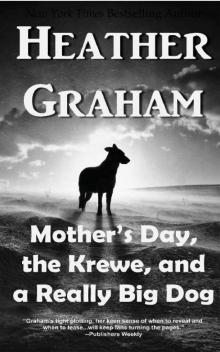 Mother's Day, the Krewe, and a Really Big Dog
Mother's Day, the Krewe, and a Really Big Dog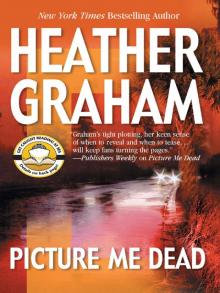 Picture Me Dead
Picture Me Dead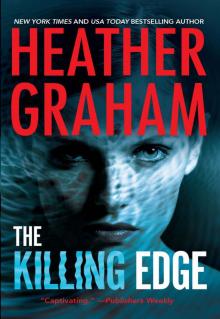 The Killing Edge
The Killing Edge St. Patrick's Day
St. Patrick's Day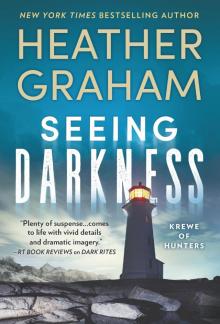 Seeing Darkness
Seeing Darkness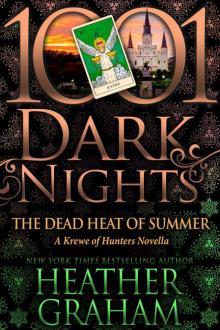 The Dead Heat of Summer: A Krewe of Hunters Novella
The Dead Heat of Summer: A Krewe of Hunters Novella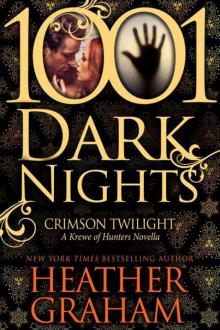 Crimson Twilight
Crimson Twilight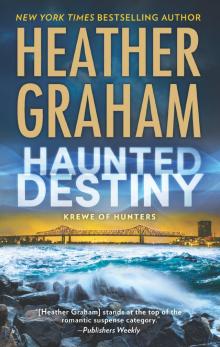 Haunted Destiny
Haunted Destiny Devil's Mistress
Devil's Mistress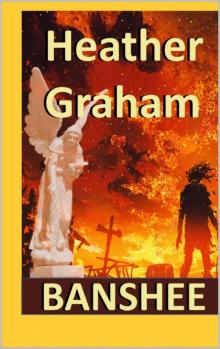 Banshee
Banshee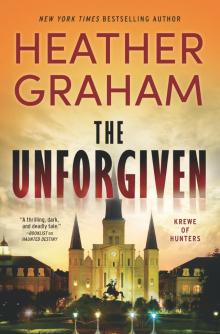 The Unforgiven
The Unforgiven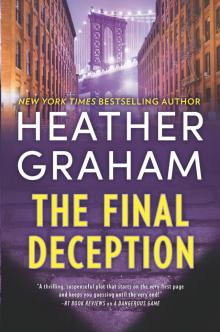 The Final Deception
The Final Deception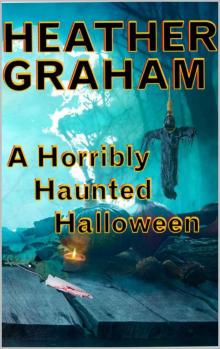 A Horribly Haunted Halloween
A Horribly Haunted Halloween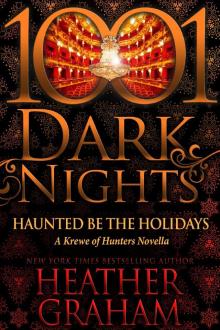 Haunted Be the Holidays
Haunted Be the Holidays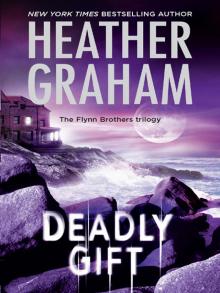 Deadly Gift
Deadly Gift Easter, the Krewe and Another Large White Rabbit
Easter, the Krewe and Another Large White Rabbit Haunted
Haunted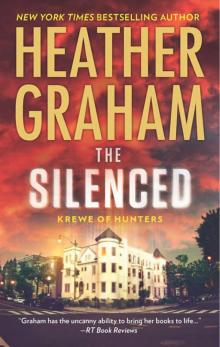 The Silenced
The Silenced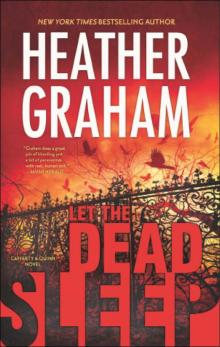 Let the Dead Sleep
Let the Dead Sleep Christmas, the Krewe, and Kenneth
Christmas, the Krewe, and Kenneth Big Easy Evil
Big Easy Evil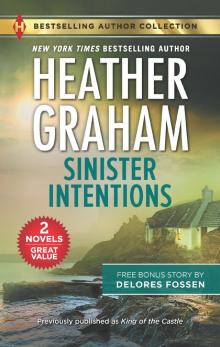 Sinister Intentions & Confiscated Conception
Sinister Intentions & Confiscated Conception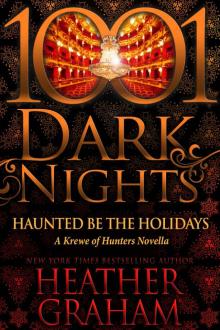 Haunted Be the Holidays: A Krewe of Hunters Novella
Haunted Be the Holidays: A Krewe of Hunters Novella Blood Red
Blood Red A Perilous Eden
A Perilous Eden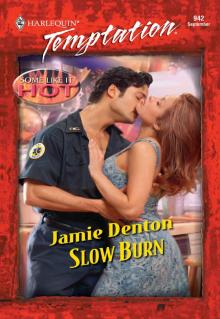 Slow Burn
Slow Burn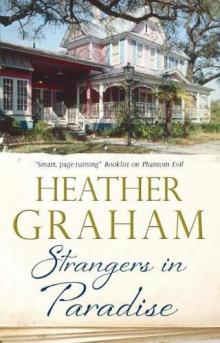 Strangers In Paradise
Strangers In Paradise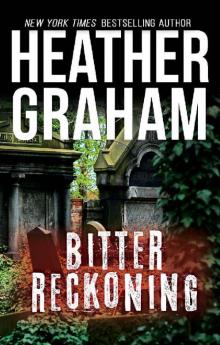 Bitter Reckoning
Bitter Reckoning Krewe of Hunters, Volume 1: Phantom Evil ; Heart of Evil ; Sacred Evil ; The Evil Inside
Krewe of Hunters, Volume 1: Phantom Evil ; Heart of Evil ; Sacred Evil ; The Evil Inside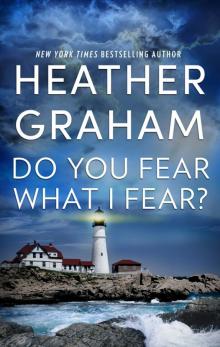 Do You Fear What I Fear?
Do You Fear What I Fear? The Face in the Window
The Face in the Window Krewe of Hunters, Volume 3: The Night Is WatchingThe Night Is AliveThe Night Is Forever
Krewe of Hunters, Volume 3: The Night Is WatchingThe Night Is AliveThe Night Is Forever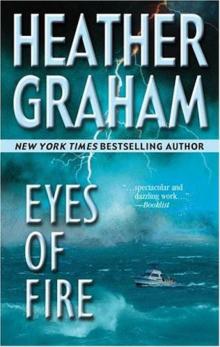 Eyes of Fire
Eyes of Fire Apache Summer sb-3
Apache Summer sb-3 Sensuous Angel
Sensuous Angel In the Dark
In the Dark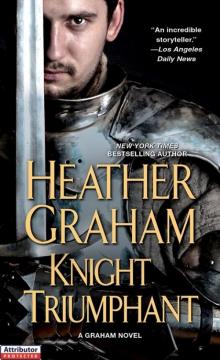 Knight Triumphant
Knight Triumphant Hours to Cherish
Hours to Cherish Tender Deception
Tender Deception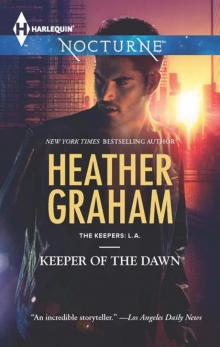 Keeper of the Dawn tkl-4
Keeper of the Dawn tkl-4 Apache Summer
Apache Summer Between Roc and a Hard Place
Between Roc and a Hard Place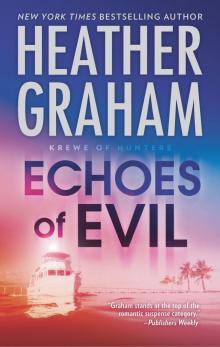 Echoes of Evil
Echoes of Evil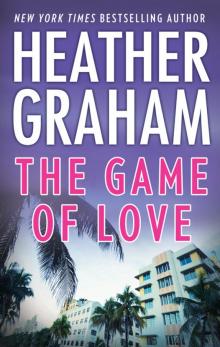 The Game of Love
The Game of Love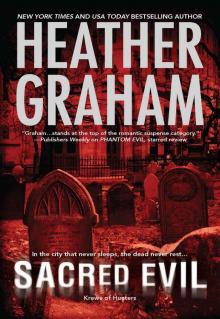 Sacred Evil (Krewe of Hunters)
Sacred Evil (Krewe of Hunters) Bougainvillea
Bougainvillea Tender Taming
Tender Taming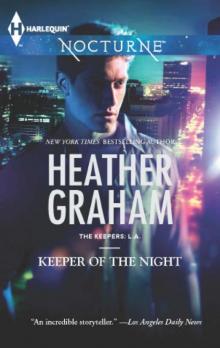 Keeper of the Night (The Keepers: L.A.)
Keeper of the Night (The Keepers: L.A.)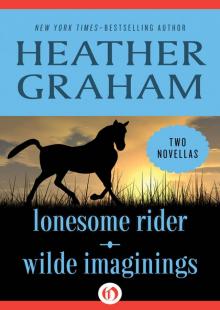 Lonesome Rider and Wilde Imaginings
Lonesome Rider and Wilde Imaginings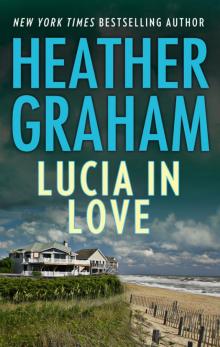 Lucia in Love
Lucia in Love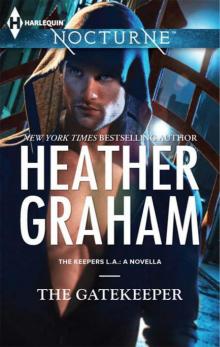 The Gatekeeper
The Gatekeeper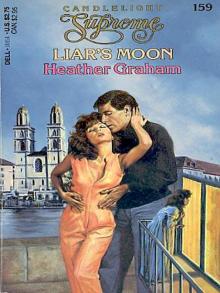 Liar's Moon
Liar's Moon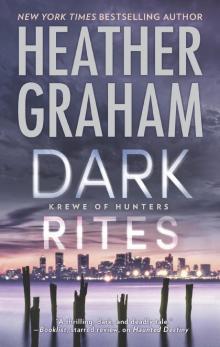 Dark Rites--A Paranormal Romance Novel
Dark Rites--A Paranormal Romance Novel A Season for Love
A Season for Love Krewe of Hunters, Volume 6: Haunted Destiny ; Deadly Fate ; Darkest Journey
Krewe of Hunters, Volume 6: Haunted Destiny ; Deadly Fate ; Darkest Journey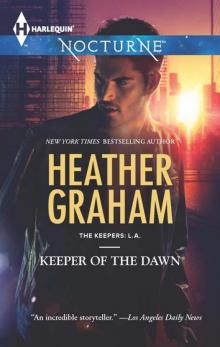 Keeper of the Dawn (The Keepers: L.A.)
Keeper of the Dawn (The Keepers: L.A.)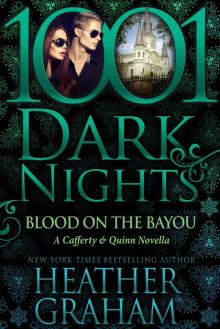 Blood on the Bayou: A Cafferty & Quinn Novella
Blood on the Bayou: A Cafferty & Quinn Novella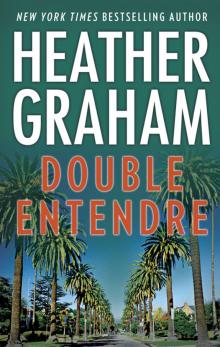 Double Entendre
Double Entendre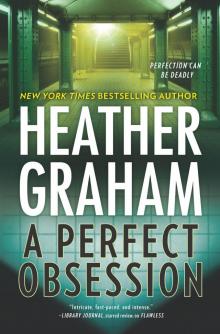 A Perfect Obsession--A Novel of Romantic Suspense
A Perfect Obsession--A Novel of Romantic Suspense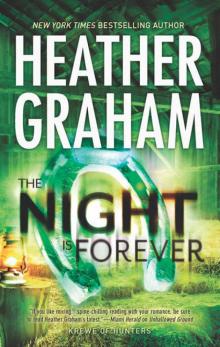 The Night Is Forever koh-11
The Night Is Forever koh-11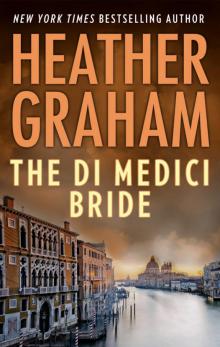 The Di Medici Bride
The Di Medici Bride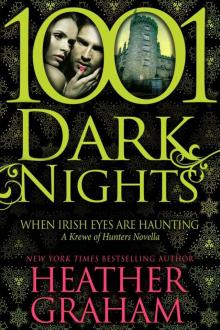 When Irish Eyes Are Haunting: A Krewe of Hunters Novella
When Irish Eyes Are Haunting: A Krewe of Hunters Novella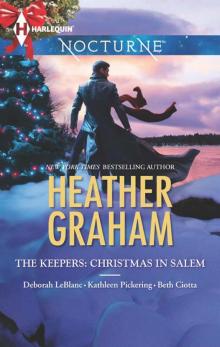 The Keepers: Christmas in Salem: Do You Fear What I Fear?The Fright Before ChristmasUnholy NightStalking in a Winter Wonderland (Harlequin Nocturne)
The Keepers: Christmas in Salem: Do You Fear What I Fear?The Fright Before ChristmasUnholy NightStalking in a Winter Wonderland (Harlequin Nocturne)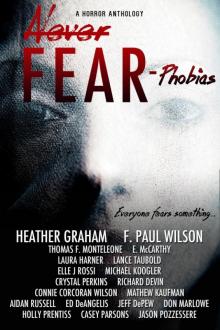 Never Fear
Never Fear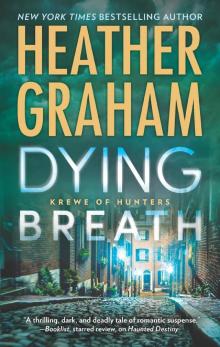 Dying Breath--A Heart-Stopping Novel of Paranormal Romantic Suspense
Dying Breath--A Heart-Stopping Novel of Paranormal Romantic Suspense If Looks Could Kill
If Looks Could Kill This Rough Magic
This Rough Magic Heather Graham's Christmas Treasures
Heather Graham's Christmas Treasures Hatfield and McCoy
Hatfield and McCoy The Trouble with Andrew
The Trouble with Andrew Never Fear - The Tarot: Do You Really Want To Know?
Never Fear - The Tarot: Do You Really Want To Know?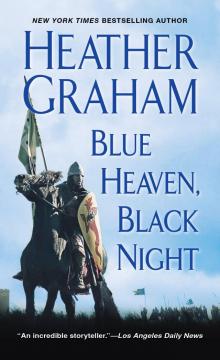 Blue Heaven, Black Night
Blue Heaven, Black Night Forbidden Fire
Forbidden Fire Come the Morning
Come the Morning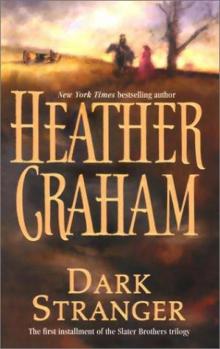 Dark Stranger sb-4
Dark Stranger sb-4 Lie Down in Roses
Lie Down in Roses Red Midnight
Red Midnight Krewe of Hunters Series, Volume 5
Krewe of Hunters Series, Volume 5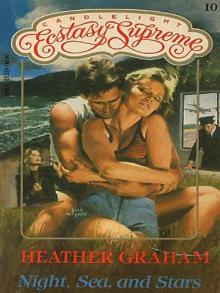 Night, Sea, And Stars
Night, Sea, And Stars Snowfire
Snowfire Quiet Walks the Tiger
Quiet Walks the Tiger Mistress of Magic
Mistress of Magic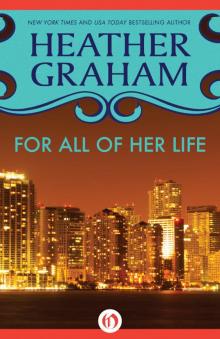 For All of Her Life
For All of Her Life Runaway
Runaway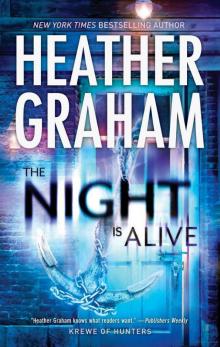 The Night Is Alive koh-10
The Night Is Alive koh-10 The Evil Inside (Krewe of Hunters)
The Evil Inside (Krewe of Hunters)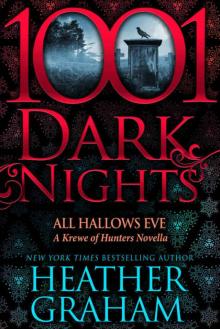 All Hallows Eve: A Krewe of Hunters Novella (1001 Dark Nights)
All Hallows Eve: A Krewe of Hunters Novella (1001 Dark Nights) Tomorrow the Glory
Tomorrow the Glory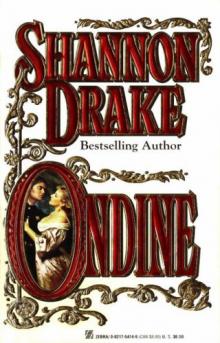 Ondine
Ondine Angel of Mercy & Standoff at Mustang Ridge
Angel of Mercy & Standoff at Mustang Ridge Bride of the Tiger
Bride of the Tiger When Next We Love
When Next We Love Heather Graham Krewe of Hunters Series, Volume 4
Heather Graham Krewe of Hunters Series, Volume 4 A Season of Miracles
A Season of Miracles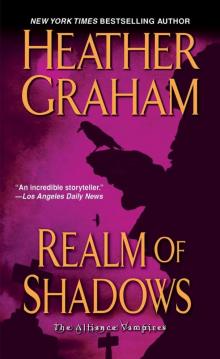 Realm of Shadows (Vampire Alliance)
Realm of Shadows (Vampire Alliance) When We Touch
When We Touch Serena's Magic
Serena's Magic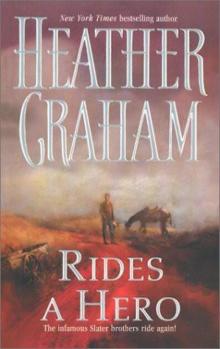 Rides a Hero sb-2
Rides a Hero sb-2 All in the Family
All in the Family Handful of Dreams
Handful of Dreams A Stranger in the Hamptons
A Stranger in the Hamptons Krewe of Hunters, Volume 2: The Unseen ; The Unholy ; The Unspoken ; The Uninvited
Krewe of Hunters, Volume 2: The Unseen ; The Unholy ; The Unspoken ; The Uninvited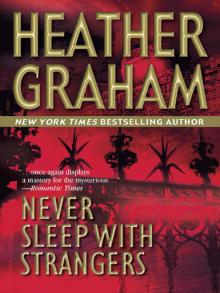 Never Sleep With Strangers
Never Sleep With Strangers Eden's Spell
Eden's Spell A Magical Christmas
A Magical Christmas Forever My Love
Forever My Love King of the Castle
King of the Castle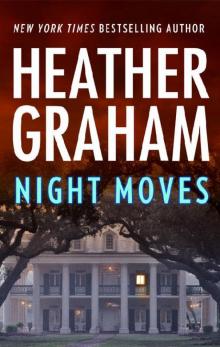 Night Moves (60th Anniversary)
Night Moves (60th Anniversary) The Island
The Island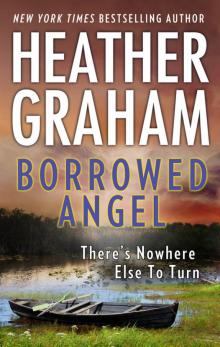 Borrowed Angel
Borrowed Angel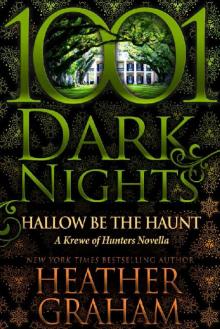 Hallow Be the Haunt: A Krewe of Hunters Novella
Hallow Be the Haunt: A Krewe of Hunters Novella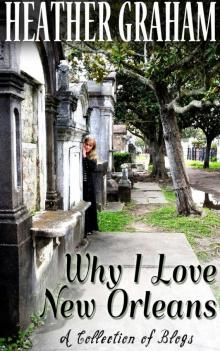 Why I Love New Orleans
Why I Love New Orleans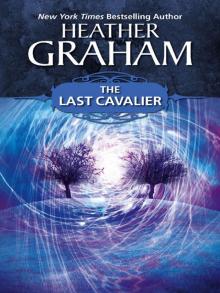 The Last Cavalier
The Last Cavalier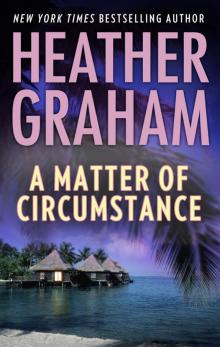 A Matter of Circumstance
A Matter of Circumstance Heather Graham's Haunted Treasures
Heather Graham's Haunted Treasures Tempestuous Eden
Tempestuous Eden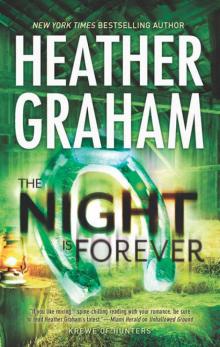 Krewe 11 - The Night Is Forever
Krewe 11 - The Night Is Forever